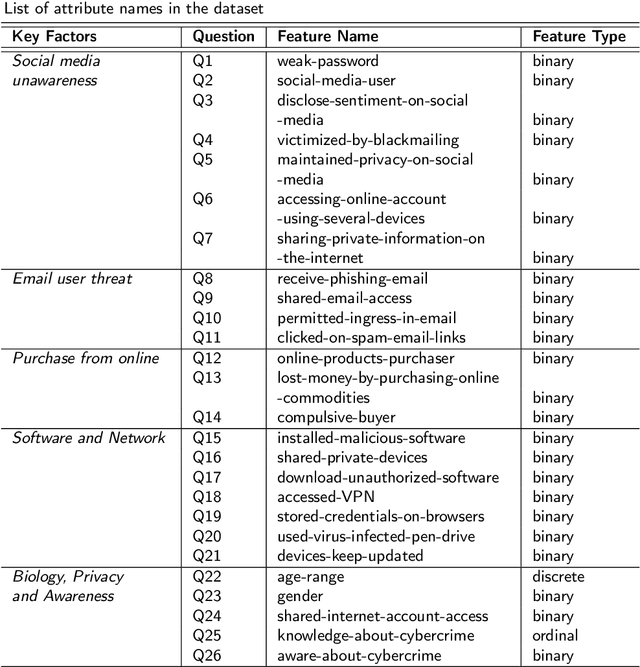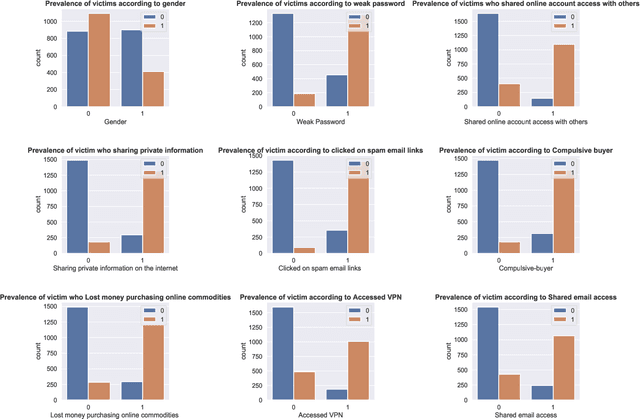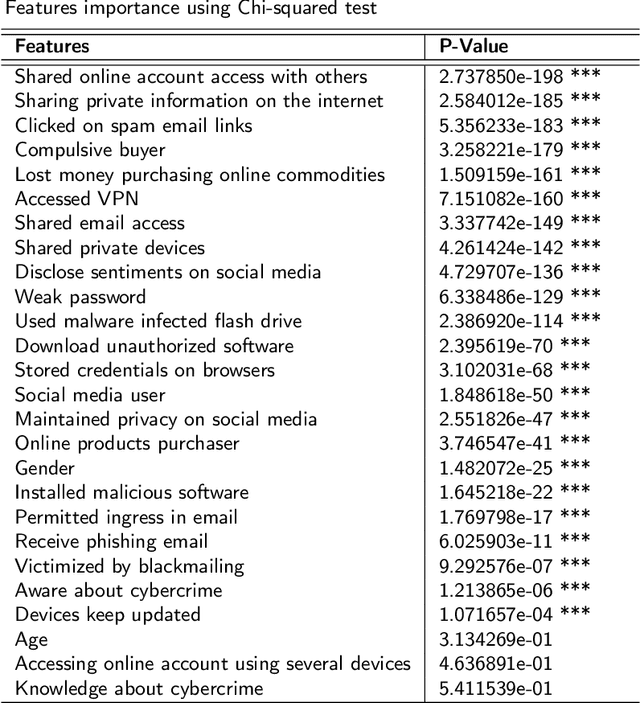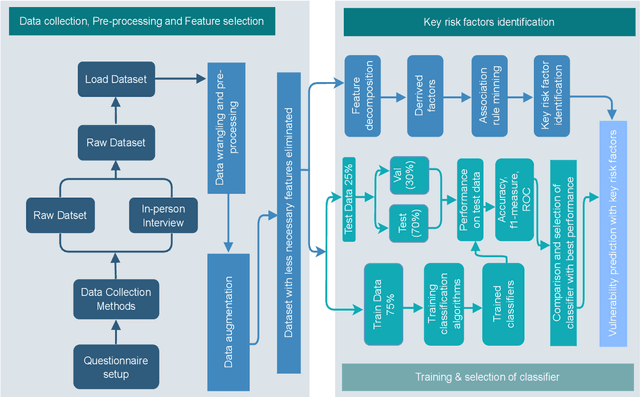Md Zubair
Department of Computer Science and Engineering, Chittagong University of Engineering & Technology, Chattogram, Bangladesh
A Machine Learning Approach for Crop Yield and Disease Prediction Integrating Soil Nutrition and Weather Factors
Mar 28, 2024Abstract:The development of an intelligent agricultural decision-supporting system for crop selection and disease forecasting in Bangladesh is the main objective of this work. The economy of the nation depends heavily on agriculture. However, choosing crops with better production rates and efficiently controlling crop disease are obstacles that farmers have to face. These issues are addressed in this research by utilizing machine learning methods and real-world datasets. The recommended approach uses a variety of datasets on the production of crops, soil conditions, agro-meteorological regions, crop disease, and meteorological factors. These datasets offer insightful information on disease trends, soil nutrition demand of crops, and agricultural production history. By incorporating this knowledge, the model first recommends the list of primarily selected crops based on the soil nutrition of a particular user location. Then the predictions of meteorological variables like temperature, rainfall, and humidity are made using SARIMAX models. These weather predictions are then used to forecast the possibilities of diseases for the primary crops list by utilizing the support vector classifier. Finally, the developed model makes use of the decision tree regression model to forecast crop yield and provides a final crop list along with associated possible disease forecast. Utilizing the outcome of the model, farmers may choose the best productive crops as well as prevent crop diseases and reduce output losses by taking preventive actions. Consequently, planning and decision-making processes are supported and farmers can predict possible crop yields. Overall, by offering a detailed decision support system for crop selection and disease prediction, this work can play a vital role in advancing agricultural practices in Bangladesh.
A Data-Driven Predictive Analysis on Cyber Security Threats with Key Risk Factors
Mar 28, 2024



Abstract:Cyber risk refers to the risk of defacing reputation, monetary losses, or disruption of an organization or individuals, and this situation usually occurs by the unconscious use of cyber systems. The cyber risk is unhurriedly increasing day by day and it is right now a global threat. Developing countries like Bangladesh face major cyber risk challenges. The growing cyber threat worldwide focuses on the need for effective modeling to predict and manage the associated risk. This paper exhibits a Machine Learning(ML) based model for predicting individuals who may be victims of cyber attacks by analyzing socioeconomic factors. We collected the dataset from victims and non-victims of cyberattacks based on socio-demographic features. The study involved the development of a questionnaire to gather data, which was then used to measure the significance of features. Through data augmentation, the dataset was expanded to encompass 3286 entries, setting the stage for our investigation and modeling. Among several ML models with 19, 20, 21, and 26 features, we proposed a novel Pertinent Features Random Forest (RF) model, which achieved maximum accuracy with 20 features (95.95\%) and also demonstrated the association among the selected features using the Apriori algorithm with Confidence (above 80\%) according to the victim. We generated 10 important association rules and presented the framework that is rigorously evaluated on real-world datasets, demonstrating its potential to predict cyberattacks and associated risk factors effectively. Looking ahead, future efforts will be directed toward refining the predictive model's precision and delving into additional risk factors, to fortify the proposed framework's efficacy in navigating the complex terrain of cybersecurity threats.
Agricultural Recommendation System based on Deep Learning: A Multivariate Weather Forecasting Approach
Jan 21, 2024Abstract:Bangladesh is predominantly an agricultural country, where the agrarian sector plays an essential role in accelerating economic growth and enabling the food security of the people. The performance of this sector has an overwhelming impact on the primary macroeconomic objectives like food security, employment generation, poverty alleviation, human resources development, and other economic and social forces. Although Bangladesh's labor-intensive agriculture has achieved steady increases in food grain production, it often suffered from unfavorable weather conditions such as heavy rainfall, low temperature, and drought. Consequently, these factors hinder the production of food substantially, putting the country's overall food security in danger. In order to have a profitable, sustainable, and farmer-friendly agricultural practice, this paper proposes a context-based crop recommendation system powered by a weather forecast model. With extensive evaluation, the multivariate Stacked Bi-LSTM Network is employed as the weather forecasting model. The proposed weather model can forecast Rainfall, Temperature, Humidity, and Sunshine for any given location in Bangladesh with higher accuracy. These predictions guide our system to assist the farmers in making feasible decisions about planting, irrigation, harvesting, and so on. Additionally, our full-fledged system is capable of alerting the farmers about extreme weather conditions so that preventive measures can be undertaken to protect the crops. Finally, the system is also adept at making knowledge-based crop suggestions for the flood and drought-prone regions of Bangladesh.
 Add to Chrome
Add to Chrome Add to Firefox
Add to Firefox Add to Edge
Add to Edge